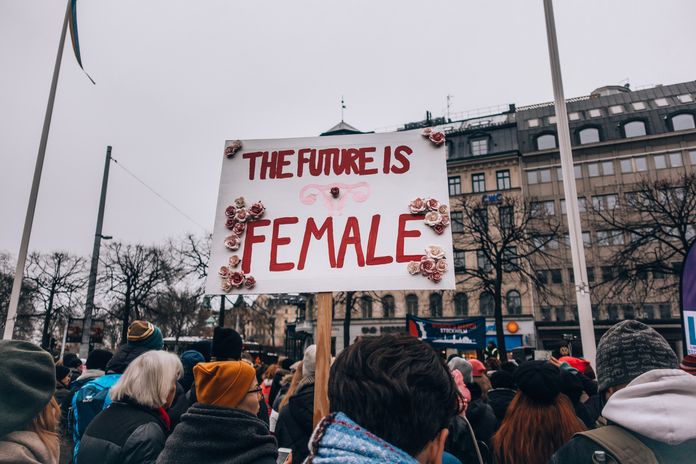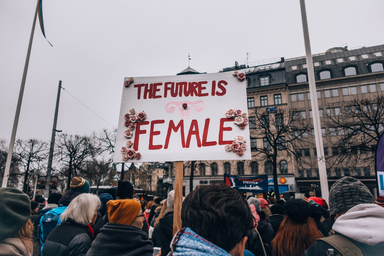Femininity in the realm of politics is often regarded as weak, unprofessional or altogether inappropriate. From dress codes, “unspoken” cosmetic rules and press control, women are taught from a young age that even if they are to earn a seat at the table, the table doesn’t celebrate equality nor individuality.
Ruth Bader Ginsburg’s devastating death this past weekend was not only the death of a feminist icon but also a reminder of just how fragile social justice can be. Ginsburg was a symbol to women in many contexts, which often aligned with her relentless battles against misogyny and sexism in politics. She is perhaps most famously known for her stylish collars and elaborate necklaces worn over her justice robes. Being the second female Supreme Court justice in history, there were not many accommodations for women, or even individualism itself when she rose to power. With her style, she revolutionized the way justices were regarded and gave hope that feminism was welcome in politics.
Representative Alexandria Ocasio-Cortez, although arriving at the political scene much later than Ginsburg, has laid the foundation for women of color to feel more inclusivity and celebration in politics. Her bold red lips showcase the ability for women’s style and cosmetics to be accepted in all workplaces as professionals and also change the narrative surrounding specifically women of color wearing this look. Previously BIPOC women, Hispanic women specifically, have sported bold red lips that has caused them to be discriminated against in the workplace and beyond for this simplistic and personal choice. Her position of power has emboldened other women to reach for their fullest potential and fight against sexism and racism in workplaces, as well as politics.
Ocasio-Cortez ran a grassroots campaign when she ran for her current position, which means she was reliant on donations from constituents and smaller businesses, unlike many politicians who accept millions from larger corporations. Both powerful women have drastically altered the image of a typical woman in politics and encouraged a more holistic approach to feminism.
However, both were and continue to be dragged through the press, attacked on social media and constantly degraded throughout their careers. Although their haters may claim it’s for their beliefs, we should question whether or not their feminine flamboyance has played a role in the constant criticism they faced. Ginsburg was professionally regarded as a moderate judge and irritatingly fair across all cases, and Ocasio-Cortez was a young working-class citizen before her brother recommended her for the seat and she beat out her New York incumbent. Yet, they are both considered radical, biased man-eaters by some far-right outlets! It is clear that this criticism of the women in power for their fashion choices only showcases the years of fighting for true equality and equal expression we have ahead of us.
Their iconic acronyms RBG and AOC will forever live on in history as women who revolted against institutionally sexist and racist political norms and brought many hopeful girls up with them.
Want to see more HCFSU? Be sure to like us on Facebook and follow us on Instagram, Twitter and Pinterest!



